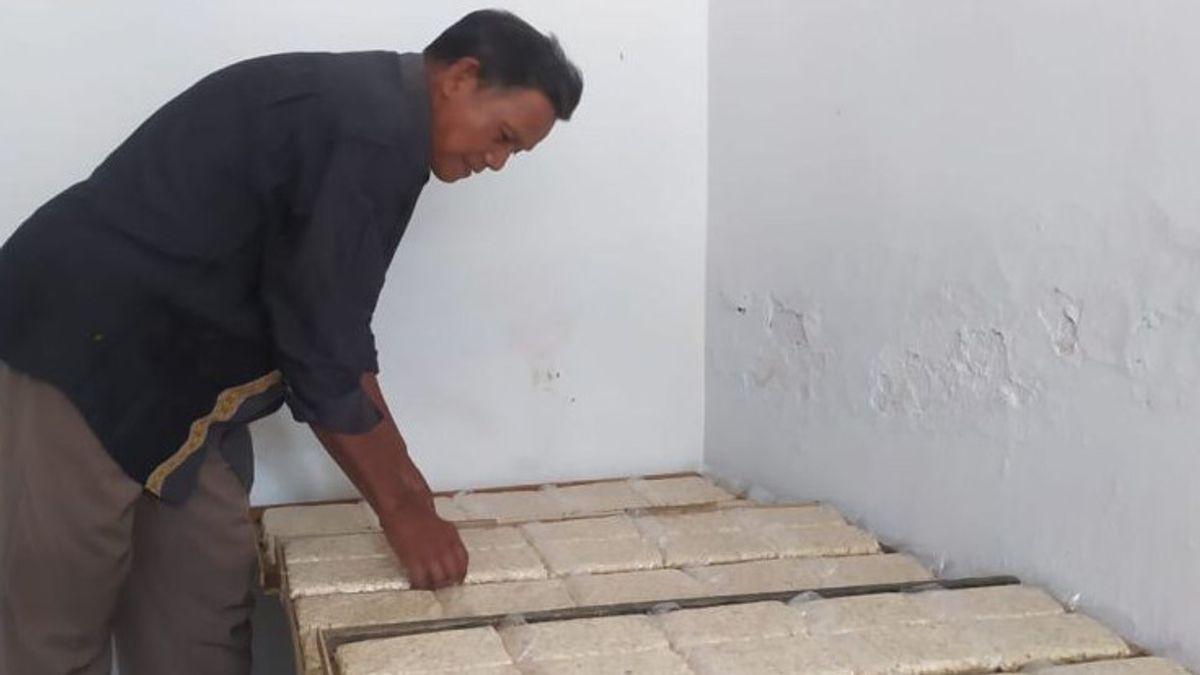JAKARTA – Don't want to lose because of the high soybean price hike. A number of craftsmen in Jember Regency, East Java set their production strategy.
"We find it difficult to produce tempe because soybean prices have skyrocketed, but on the other hand we have to keep producing because many traders have ordered tempe for resale," said one tempe maker, Zaenal Arifin, quoting Antara, Monday, February 28.
Dozens of tempe craftsmen or home-based entrepreneurs producing tempeh in the Kedung Piring neighborhood, Tegalbesar Village, have complained about the increase in the price of imported raw materials used to make tempeh over the past month.
"To continue producing tempe, we have to set a certain strategy by reducing the size of the tempe and not increasing the price of tempe sold to traders," he said.
- https://voi.id/economy/139466/kunjungan-ke-madiun-gubernur-khofifah-indar-parawansa-pantau-harga-daging-sapi-dan-stok-minyak-goreng
- https://voi.id/berita/19375/dilaporkan-gp-ansor-saat-pencemaran-nama-baik-roy-suryo-insyaallah-kita-hadapi-bersama
- https://voi.id/berita/19317/kongres-pemuda-indonesia-sebut-gp-ansor-tak-have-legal-standing-adukan-roy-suryo-ke-polisi
- https://voi.id/berita/1139282/gp-ansor-polisikan-roy-suryo-jual-fitnah-menag-yaqut-mengenai-speaker-azan-dan-sample-anjing-menggonggong
According to him, the craftsmen were forced to reduce the size of the tempeh so as not to lose money because the selling price of tempeh did not increase, namely Rp. 3,000 per unit, so this strategy was carried out.
"Reducing the size of tempeh is considered better because usually buyers will complain if the price of tempeh is increased, especially during a pandemic like this," he said.
He said the imported soybean raw materials used to make tempeh cannot be replaced with local soybeans because the quality is not the same which can have an impact on tempe yields.
"If you use imported soybeans, the tempeh can last for 3 days, while if you use local soybeans, sometimes a day has grown mushrooms and can't be cooked," he said.
The same thing was conveyed by another tempe craftsman, Aminah, who complained about the high price of soybean raw materials over the past few weeks, so that tempe makers set a strategy so as not to lose money.
"The price of imported soybeans is Rp. 11,500 per kilogram, whereas previously the price was in the range of Rp. 6,200 per kilogram. I hope the government will also provide a solution to the increase in soybean prices, so that we can continue to produce tempeh," he said.
Observations in a number of traditional markets, traders continue to sell tempe and tofu to the public because the production of tempe and tofu continues, but the size is smaller than before.
The English, Chinese, Japanese, Arabic, and French versions are automatically generated by the AI. So there may still be inaccuracies in translating, please always see Indonesian as our main language. (system supported by DigitalSiber.id)













